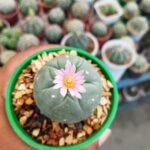
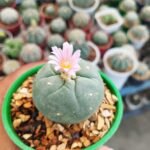
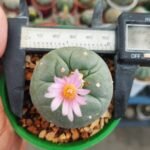
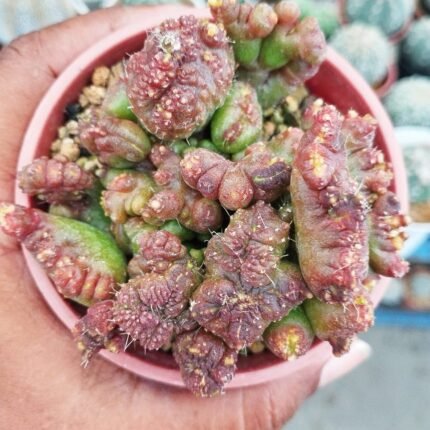
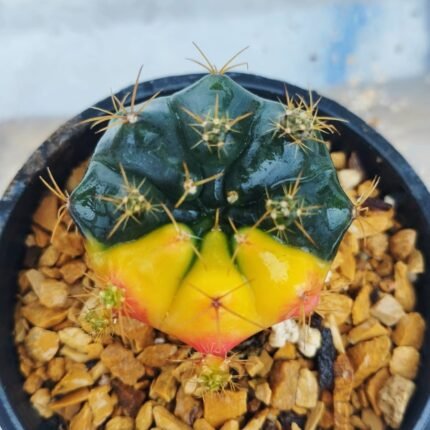
lophophora williamsii hybrid
₹699.00 Original price was: ₹699.00.₹499.00Current price is: ₹499.00.
1 in stock
The various species of the genus Lophophora grow low to the ground and they often form groups with numerous, crowded shoots. The blue-green, yellow-green or sometimes reddish-green shoots are mostly flattened spheres with sunken shoot tips. They can reach heights of 2 to 7 centimeters (0.79 to 2.76 in) and diameters of 4 to 12 cm (1.6 to 4.7 in). There are often significant, vertical ribs consisting of low and rounded or hump-like bumps. From the cusp areoles arises a tuft of soft, yellowish or whitish woolly hairs. Spines are absent. Flowers are pink or white to slightly yellowish, sometimes reddish. They open during the day, are from 1 to 2.4 cm (0.39 to 0.94 in) long, and reach a diameter from 1 to 2.2 cm (0.39 to 0.87 in).
The cactus produces flowers sporadically; these are followed by small edible pink fruit. The club-shaped to elongated, fleshy fruits are bare and more or less rosy colored. At maturity, they are brownish-white and dry. The fruits do not burst open on their own and they are between 1.5 to 2 cm (0.59 to 0.79 in) long. They contain black, pear-shaped seeds that are 1 to 1.5 mm long and 1 mm wide. The seeds require hot and humid conditions to germinate. Peyote contains a large spectrum of phenethylamine alkaloids.[2] The principal one is mescaline for which the content of Lophophora williamsii is about 0.4% fresh (undried) and 3–6% dried.[7]
Taxonomy
[edit]
French botanist Charles Antoine Lemaire described the species as Echinocactus williamsii in 1845. It was placed in the new genus Lophophora in 1894 by American botanist John Merle Coulter.
Distribution and habitat
[edit]
L. williamsii is native to southern North America, mainly distributed in Mexico. In the United States, it grows in Southern Texas. In Mexico, it grows in the states of Chihuahua, Coahuila, Nuevo León, and Tamaulipas in the north to San Luis Potosi and Zacatecas.[8][9][10] It is primarily found at elevations of 100 to 1,500 m (330 to 4,920 ft) and exceptionally up to 1,900 m (6,200 ft) in the Chihuahuan desert, but is also present in the milder climate of Tamaulipas. Its habitat is primarily in desert scrub, particularly thorn scrub in Tamaulipas. It is common on or near limestone hills.[11]
Constituents
[edit]
Peyote contains a variety of alkaloids including mescaline, pellotine, anhalonidine, and hordenine, among others.[12][13] In terms of total alkaloid content, mescaline makes up 30%, pellotine 17%, anhalonidine 14%, and hordenine 8%.[12] Other major alkaloids include anhalamine, anhalidine, anhalinine, anhalonine, lophophorine, O-methylanhalonidine.[14] Peyophorine is a minor constituent, while isoanhalamine, isoanhalidine, isoanhalonidine, and isopellotine are trace constituents.[14] Tyramine and N-methyltyramine are also present in peyote.[13] More than 50 different alkaloids have been isolated from peyote, but many of them in only minor or trace amounts.[14]
Cultivation
[edit]
Peyote is extremely slow growing. Cultivated specimens grow considerably faster, sometimes taking less than three years to go from seedling to mature flowering adult. More rapid growth can be achieved by grafting peyote onto mature San Pedro root stock. The top of the above-ground part of the cactus, the crown, consists of disc-shaped buttons. These are cut above the roots and sometimes dried. When done properly, the top of the root forms a callus and the root does not rot. When poor harvesting techniques are used, however, the entire plant dies.[15] Currently in South Texas, peyote grows naturally but has been over-harvested, to the point that the state has listed it as an endangered species.[16] Cultivation is an important conservation tool for this particular species.[17] Promoting San Pedro as a Peyote substitute may act as an intervention to reduce Peyote consumption.[18]


 Cactus
Cactus Astrophytum Asterias
Astrophytum Asterias Gymnocalycium
Gymnocalycium Mammillaria
Mammillaria Other
Other Home Plant
Home Plant Succulent & Caudex Plant
Succulent & Caudex Plant Orchids & Air Plants
Orchids & Air Plants Lotus Plant
Lotus Plant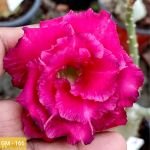 Adenium Plant
Adenium Plant Combo Offer
Combo Offer Plant Media & Others
Plant Media & Others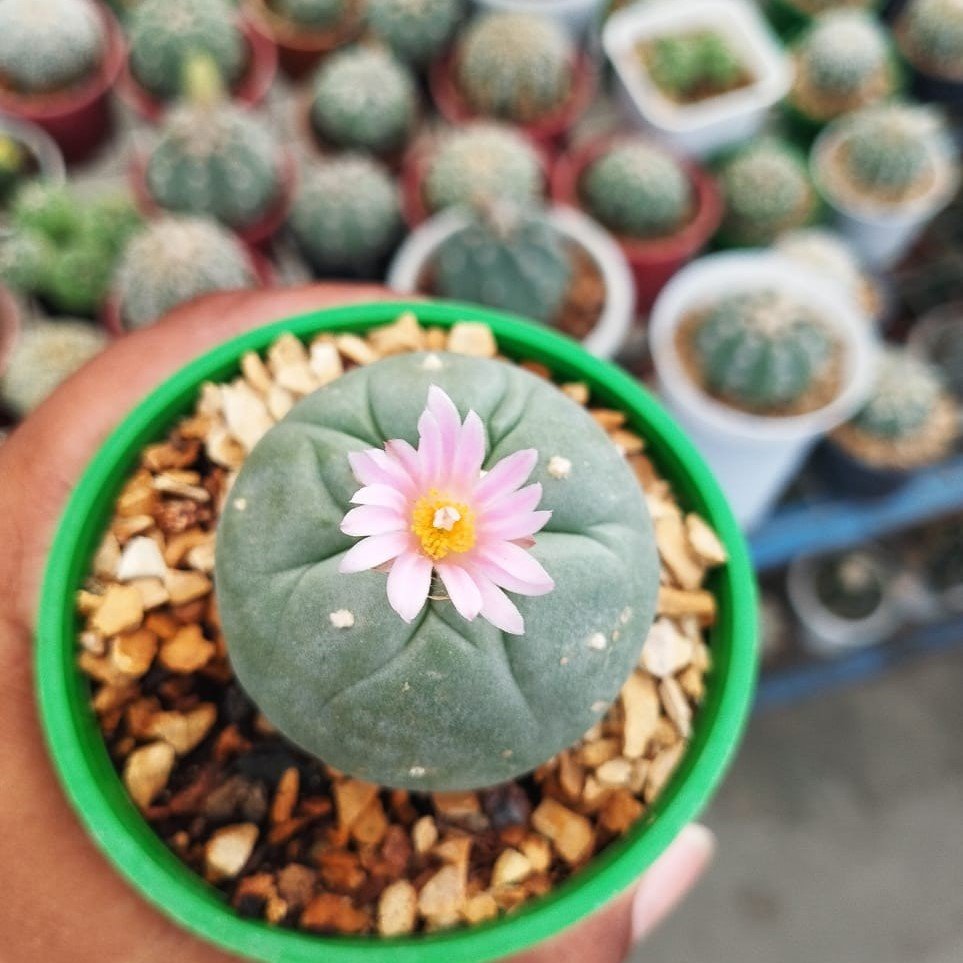
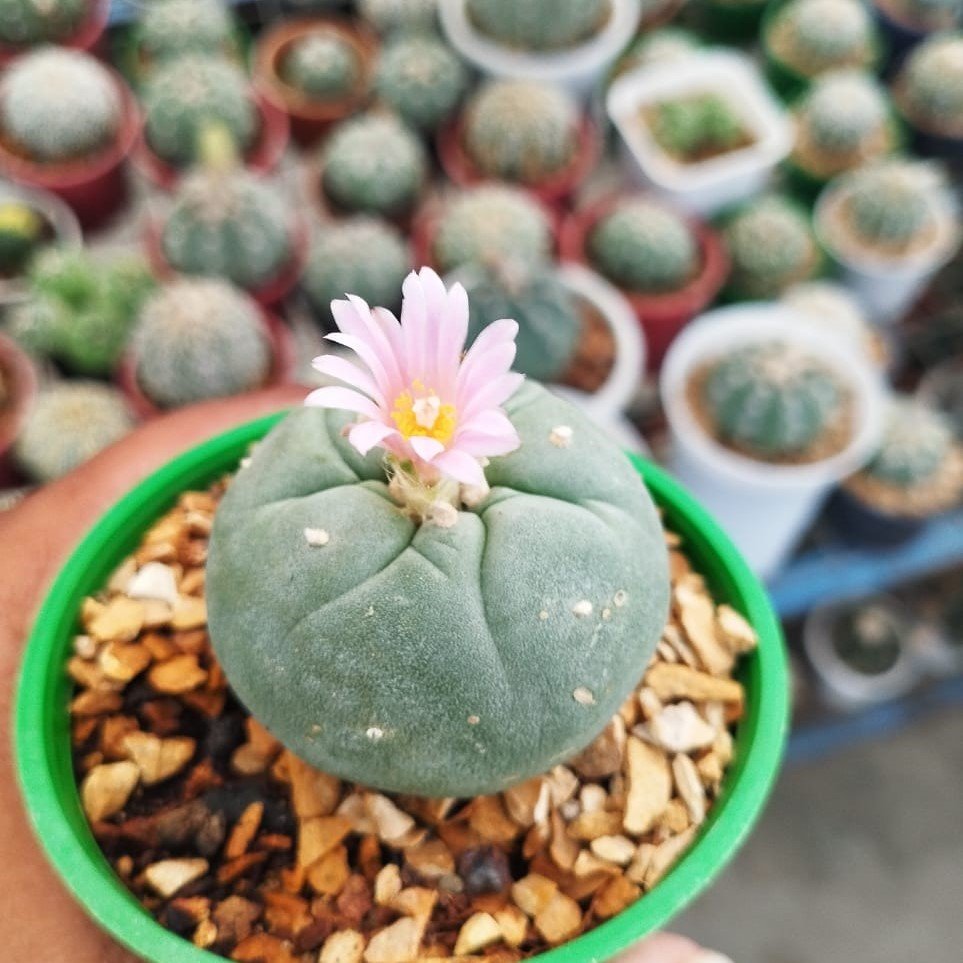
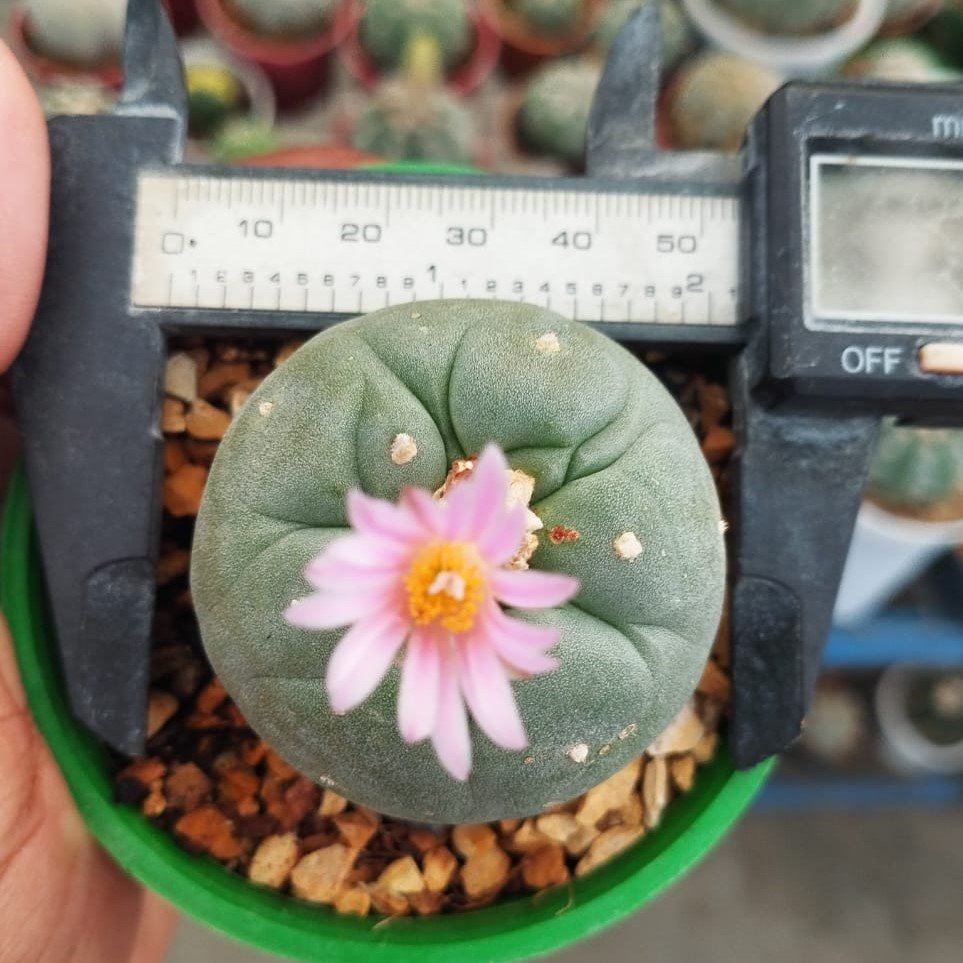




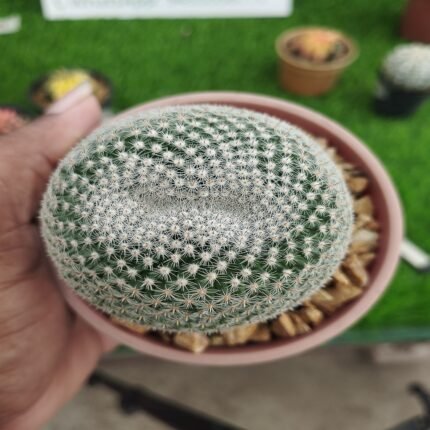
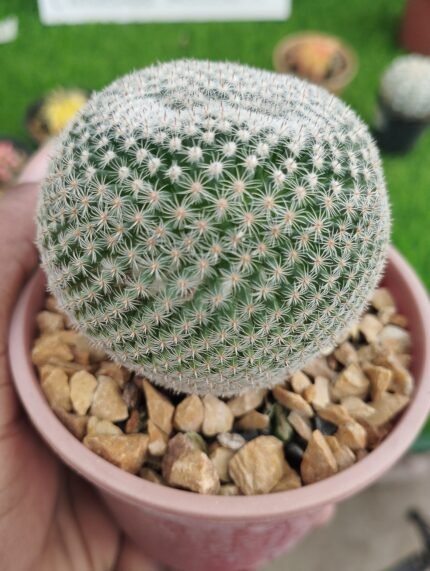
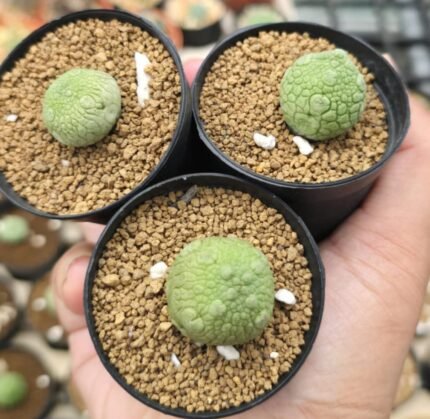
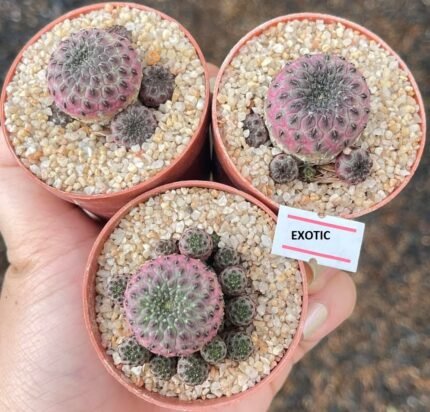
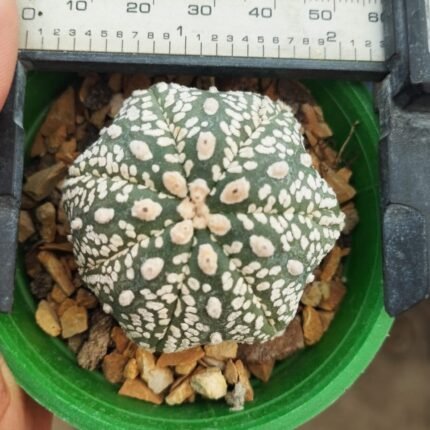
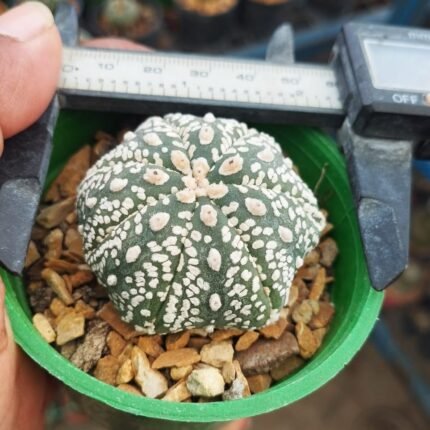
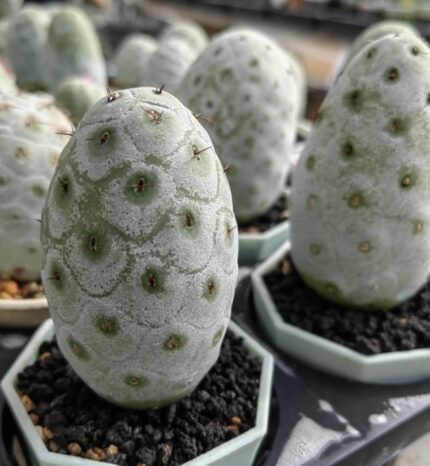
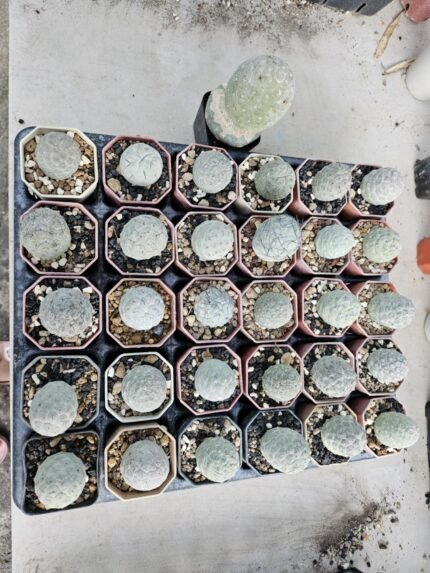
Reviews
There are no reviews yet.